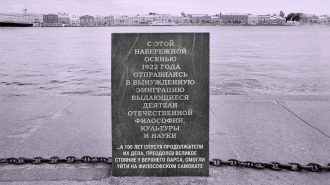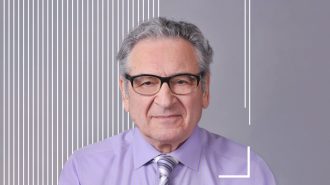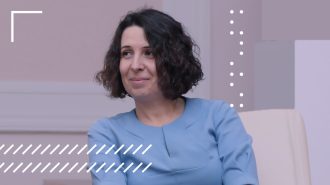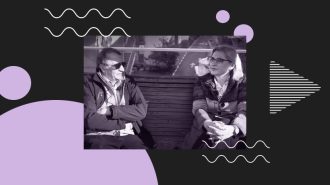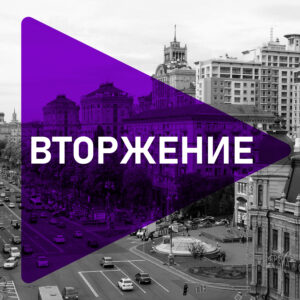How do universities in exile try to preserve academic freedoms for those who have lost them? Why and at what point does the idea of boycotts of universities begin to contradict academic freedoms? T-invariant spoke to Dmitry Dubrovsky, PhD in History, Professor at the Free University.
Relocation
University education is increasingly becoming a hostage to political upheavals. Mass migrations of scientists are the new reality of academic life. What are the main problems of scientists in exile? Do they have a chance to preserve traditions, scientific schools and programs? These and other issues were discussed by participants of the conference Sustainable knowledge: Lessons from Universities, Scholars and Students in Exile, which was recently held in Vilnius.
At the beginning of March 2022, graduate students of the European University in Florence Emil Kamalov and Ivetta Sergeeva, political scientist Margarita Zavadskaya and sociologist Nika Kostenko launched a sociological project OutRush, during which they surveyed three waves of those who left. Who are these people, what do they do, what do they think about returning home, what do they hope for? Nika Kostenko, a researcher at Tel Aviv University, talks about the results of the T-invariant study.
Even before the war with Ukraine, about 150 young Russian scientists became Fulbright scholarsand got the opportunity to study at American universities. In March of this year, the IIE and Cultural Vistas organizations sponsoring the program were declared undesirable in Russia. T-invariant looked into what awaits fellows in their home countries and what alternatives young scientists see for themselves.
Over the course of two years, several thousand scientists left Russia, sometimes entire teams were evacuated. Some of them managed not only to survive, but to be reborn in a new reality. In February 2024, the Agency for Control and Quality Assurance of Higher Education of Montenegro decided on state accreditation of the Faculty of Liberal Arts and Sciences (FLASH), which was created by former employees of the Moscow Higher School of Social and Economic Sciences. Teodora Shanin. And this is not the only example of how fugitive Russians are reassembling academic projects.
On October 14-15, the annual RASA conference will be held in Chicago. This year it is dedicated to the 150th anniversary of the birth of Sergei Rachmaninov. We discussed what Rachmaninov’s creative experience of emigration teaches, why his works were banned and allowed to be performed again in the USSR, and whether classical music will stand the test of time in a conversation with the honorary speaker of the conference, the conductor who performed all of Rachmaninov’s works, professor, Director of the Orchestra Northwestern University Music Biehnen School Viktor Yampolsky. Interviewed by Olga Orlova.
A quota set by the Czech government for the reception of Russian and Belarusian dissidents is not even half used during the year. Czech analysts suggest ways to improve the program's efficiency, arguing that the new scholars and journalists are valuable to the country and will help restore democracy after Eastern European dictatorships.
«I will not go back: I cannot work in a country that is at war with its neighbors,» Yelena Bunina, CEO of Russia's Yandex, wrote to colleagues in early March 2022 and did not return to Russia from vacation. Today, Elena Bunina, a professor at Bar Ilan University talks about the losses and gains of the past year.
The war caused the largest and fastest «brain drain» from Russia since the early 1990s. What is the peculiarity of this wave? T-invariant launches a series of videos titled «Philosophical Scooter». Первый выпуск: «Brain Drain: How Scientists Go to Israel». We discuss with Yakov Krasik, Professor, Department of Physics, Professor, Department of Physics, The Technion – Israel Institute of Technology.
Science during war with the voices of scientists from Ukraine. Why Ukrainian scientists are not given scientific visas to the USA and other countries? How to help scientists who stay to work in Ukraine? What kind of science is possible in Ukraine of the future? Episode 1. Podcast Invasion.






